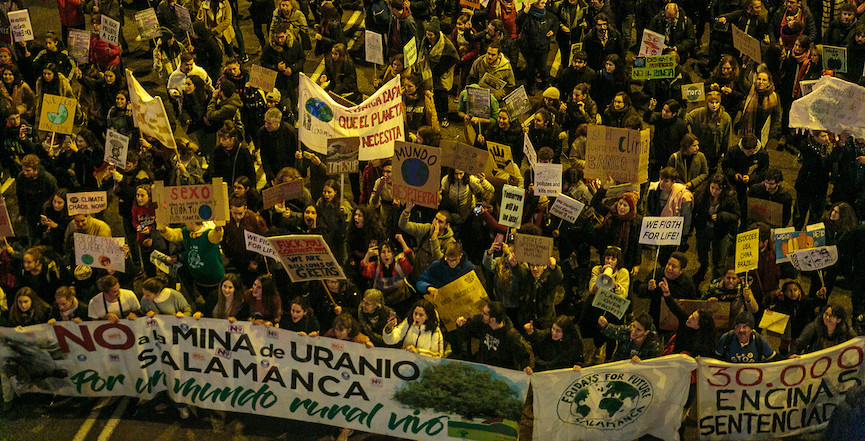We live in strange times. All evidence shows we’re driving ourselves to a climate breakdown that threatens our survival, and what do governments do? Do they employ the many available solutions and work to educate the public and resolve the crisis? A few are trying, while some outright deny the evidence, some attack citizens who speak out about the emergency and others claim to care while planning ways to sell enough fossil fuels to cook the planet.
I just witnessed the poor outcome of the Madrid climate conference, where some countries — those most responsible for the climate emergency among them — continued to elevate the fossil fuel industry’s interests above humanity’s. When governments fail to lead, it’s up to the people, which is why climate strikes, lawsuits, constructive conversations and pressuring governments are crucial.
Canada played a positive role in Madrid, but we need to accept an important reality: We can’t burn all the bitumen in Alberta without putting our health, well-being, economy, and likely survival at risk. Alberta and Canada needed a sensible plan to reduce fossil fuel reliance decades ago, including helping displaced workers. Now we’ve stalled for so long that the province and country need to lead on a global, all-out mobilization to avert catastrophe.
Instead, some Albertans — including in government — complain when schools use critical thinking exercises that illustrate varying perspectives on the oilsands. Alberta’s government launched a “war room,” ostensibly to provide a “fact-based narrative about Canadian energy” that “will reject what is false and promote what is true.” Its website offers this upside down “truth“: “expanding access to Canada’s vast fossil fuel resources will significantly lower global greenhouse gas emissions.” To add to the absurdity, the war room is partly funded by the province’s carbon tax revenue and structured so it’s not subject to freedom of information regulations.
There’s a concerted effort to silence or punish those who speak up about the impact fossil fuel development and use, including oilsands bitumen, are having on air, water, land, animals, plants, and climate.
Those who promote coal, oil and gas fear criticism of the industry. They know science is not on their side. They know a necessary change is coming, quickly. Banks are dumping Alberta bonds because of Alberta and Canada’s poor climate record and high per capita greenhouse gas emissions. Investors are divesting from fossil fuels. Financial services company Moody’s has downgraded Alberta’s credit rating in part because of the province’s dependence on fossil fuels. Tech companies are choosing to locate in provinces that don’t prioritize fossil fuels over all else. And people in most of Canada voted for federal parties with real climate plans.
Maybe industry leaders believe they can stall for a while to facilitate more of the massive profits they’ve enjoyed while the planet was heating — and with help from media and politicians, they could be right. But that would be to all our detriment.
The federal government’s decision on whether or not to green light Teck’s proposed Frontier mine will be a good indicator of how seriously it takes the global climate emergency. Industry and government justify the project — a 292-square-kilometre open-pit bitumen mine that will produce 260,000 barrels a day until 2066 (with full shutdown and reclamation in 2081) — by claiming the sector could remain below the 100-megatonne cap on greenhouse gas emissions imposed by the previous provincial government. But they don’t account for emissions from burning the product in countries where it will end up.
The mine will also destroy 3,000 hectares of old growth forest and 14,000 hectares of wetlands (both important carbon sinks), threaten wildlife including bison, lynx and caribou, and comes with uncertainty around cleanup. It’s also based on an unrealistic sale-price estimate of US$95 a barrel.
The federal government has until the end of February to decide whether it will proceed.
With global heating and its impacts accelerating faster than scientists predicted — including the Greenland ice sheet melting at a rate seven times faster than in the 1990s and Arctic warming releasing carbon dioxide and methane from melting permafrost — we absolutely must shift rapidly to a less-wasteful society that uses renewable energy rather than fossil fuels.
With every year that passes, scientists’ warnings get more urgent. We must resolve to act decisively in the coming year.
David Suzuki is a scientist, broadcaster, author and co-founder of the David Suzuki Foundation. Written with contributions from David Suzuki Foundation senior editor and writer Ian Hanington. Learn more at davidsuzuki.org.
Image: FOEI/Flickr



